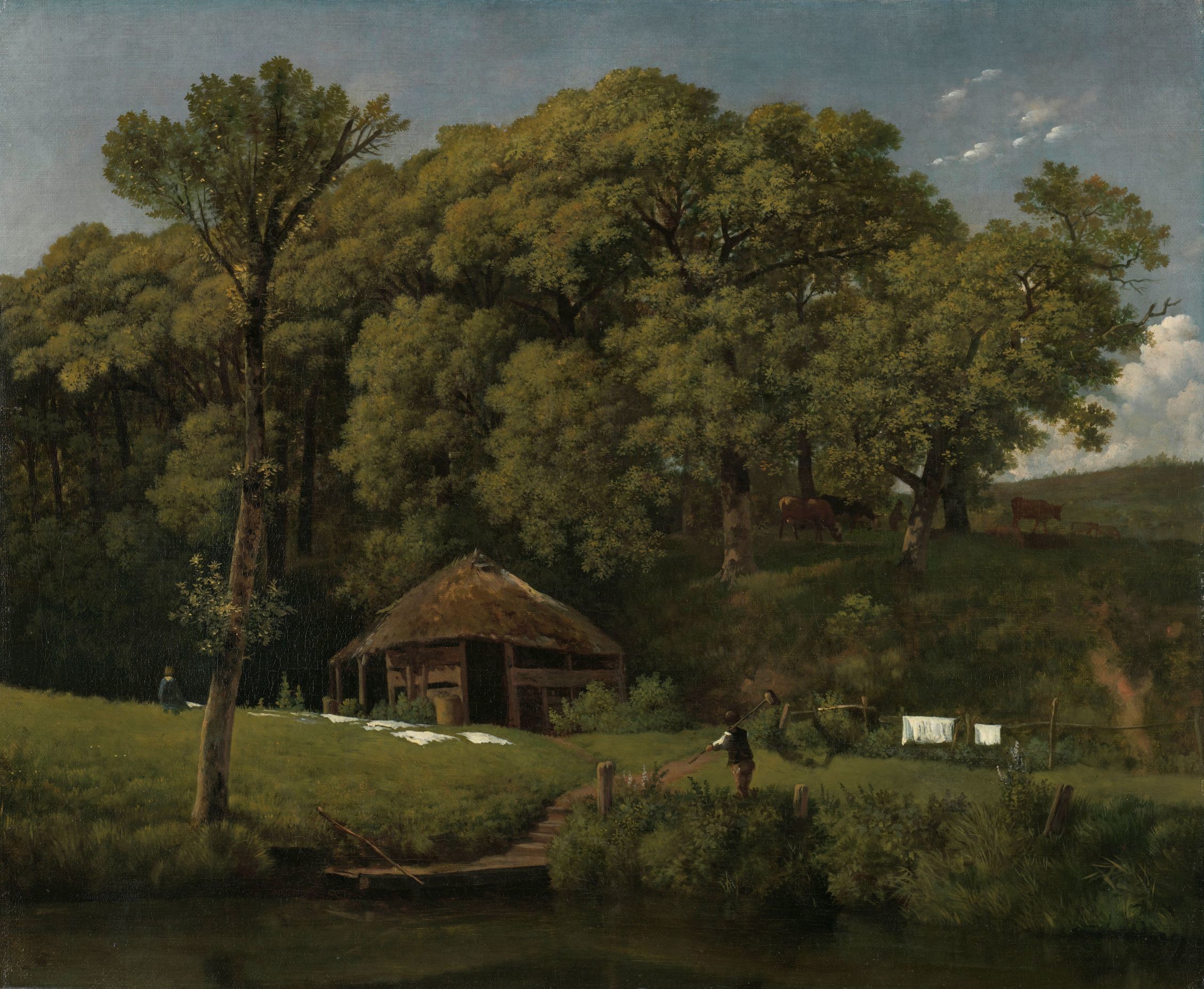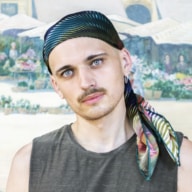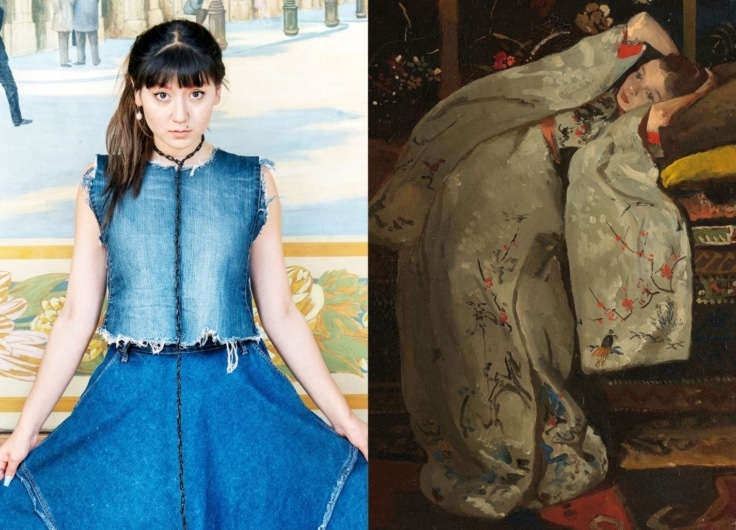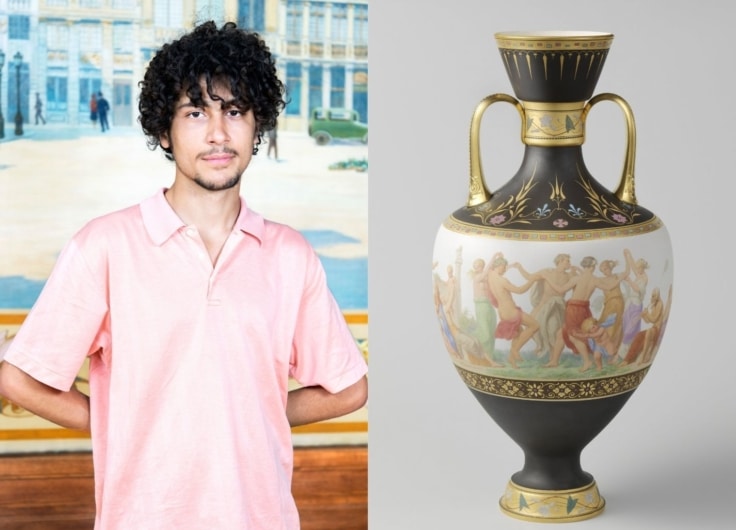Eighteen young authors have brought nineteenth-century artefacts from the Rijksmuseum to life. They have taken inspiration from the question: what do you see when you look at these objects with an eye for invisible labour? Jorik Amit Galama wrote a text in response to the painting Farm on the bank of a stream in Gelderland by Wouter Johannes van Troostwijk from c. 1805 – c. 1810. ‘Slowly, everything and everyone starts drifting, frames fill with what they’re taking away.’
 Wouter Johannes van Troostwijk, Farm on the bank of a stream in Gelderland, c. 1805 – c. 1810
Wouter Johannes van Troostwijk, Farm on the bank of a stream in Gelderland, c. 1805 – c. 1810© Rijksmuseum Collection, Amsterdam
Guided tour
I’m looking. One of the silverfish gorging on unread critical theory? Or perhaps the mosquito up in the net, red-hot with the drop of blood I’m prepared to give for the home country? Or else the noble moth that flew in across the noise barrier last night? No, let’s go for the bluebottle loitering near the kitchen window, her iridescent body a traceable point in space.
Without paying attention to the exhibits, I stomp through the building. I sit down on a bench in the middle of a room. As soon as I think no one’s watching, I take out the box and carefully open the lid. I wait a few seconds and then gently blow on the wings; she flies off. Her first destination is a display case with tufts of hair from a suicide terrorist. Not to her taste, and she moves on to a painting of a horse whose tail has been decorated with a rosette. This, too, fails to move her. After a few loops in the air she lands on the frame of a landscape.
Pieces of cloth are bleaching beside a river, beyond it a dilapidated barn, bordered by trees. A few cows graze in the shade. Somewhere in the background, the Plantatiocene has commenced, with the largescale monocultural crop model of the plantations in the American colonies crossing the ocean to unleash the second agricultural revolution in Europe and once and for all subject the landscape to the tyranny of the rectangle.
I see the forty boxes with Frisian farmers fanning out under my name on the genealogy website. For a long time, I told myself a comforting lie. One in which the pulverisation of humanity in the South, as driven by the North, had passed Blauhûs by. Come to think of it, where’s the painting of the farm that used to hang in the room in which my pake died? The farm that my granddad’s father swapped during the Great Depression for a hotel by the side of a road that would soon be diverted, an economic death sentence. Slowly, everything and everyone starts drifting, frames fill with what they’re taking away.
I connect the trees in the painting with the story of an old oak – one of the few still standing in the region where I grew up. A farmer wanted to cut the oak because his ever-bigger tractors struggled to manoeuvre around it. But the farmer’s wife asked him to wait. She took photos of the tree throughout the seasons and nailed them to the barn walls. Perhaps seeing the beauty of the oak, perhaps only heeding the love for his wife, the farmer decided to spare the tree.
The bluebottle washes her legs and walks down the bleaching fields. I flap my hands, thinking I might catch her again. She flies up and traces a few Os and Ws in the air. As soon as she alights near two silver candelabras, I spy my chance, but the watchful eyes of a guard stop me, and with feigned nonchalance I take a few steps forward. When I walk back, she’s gone.






